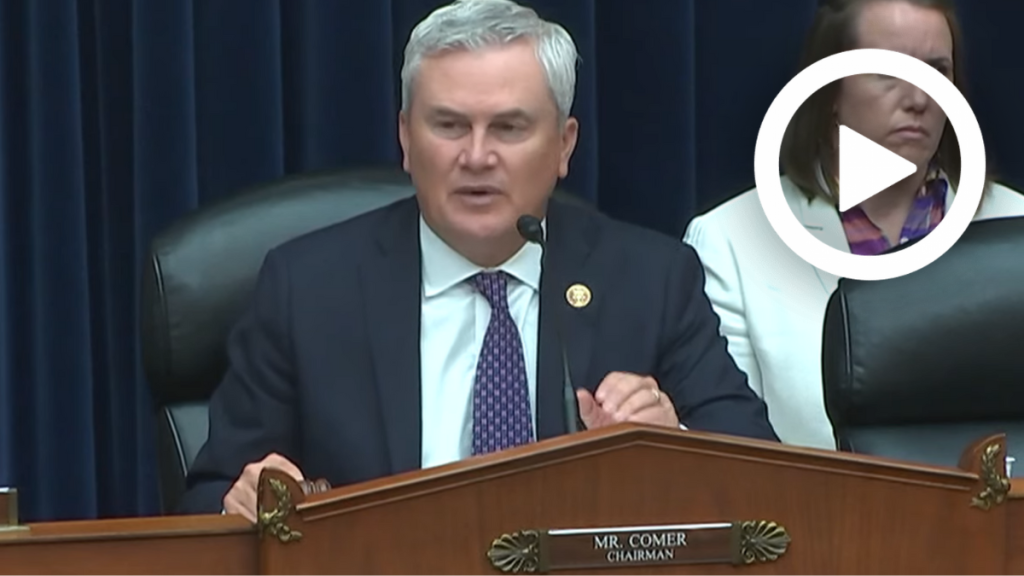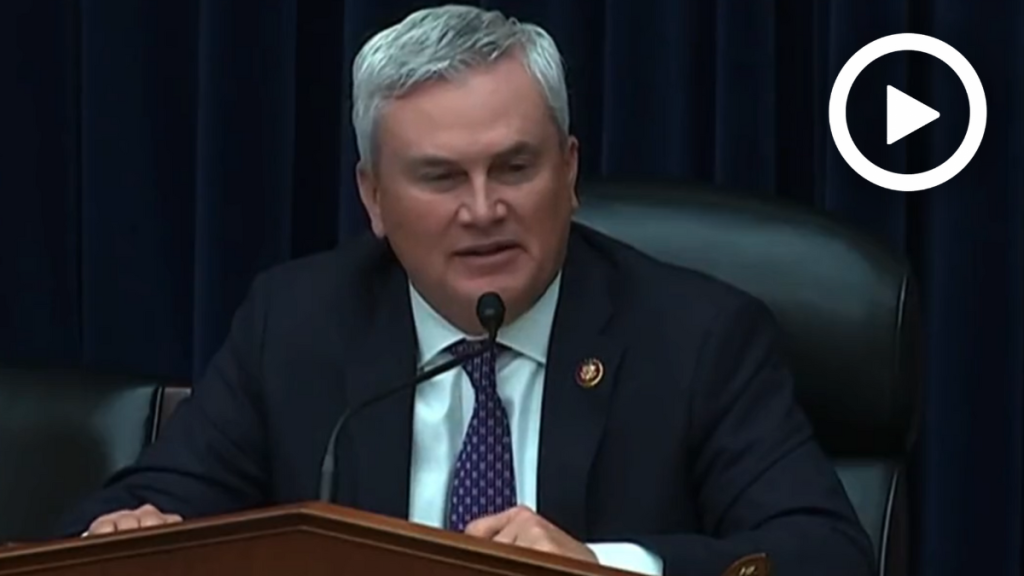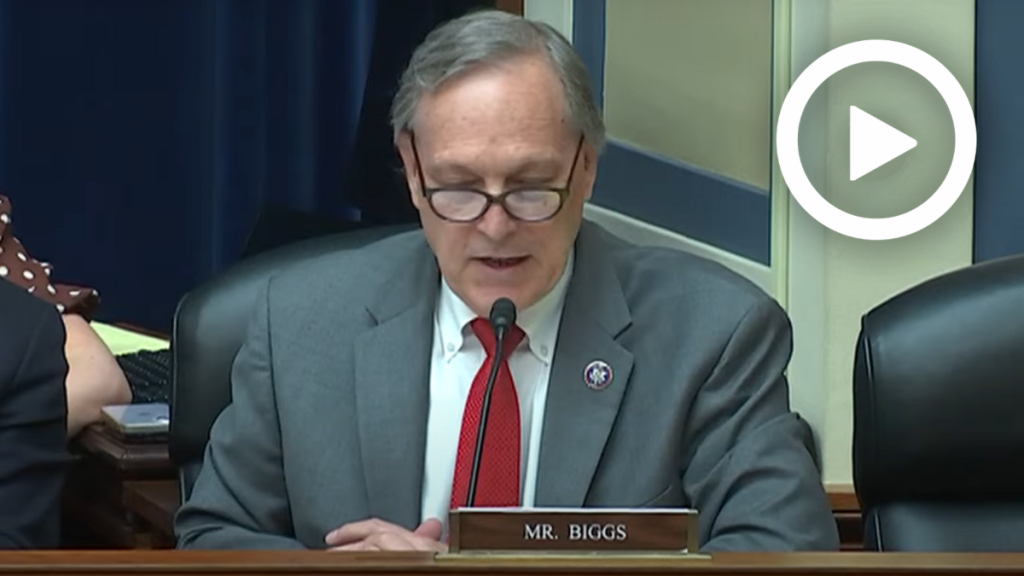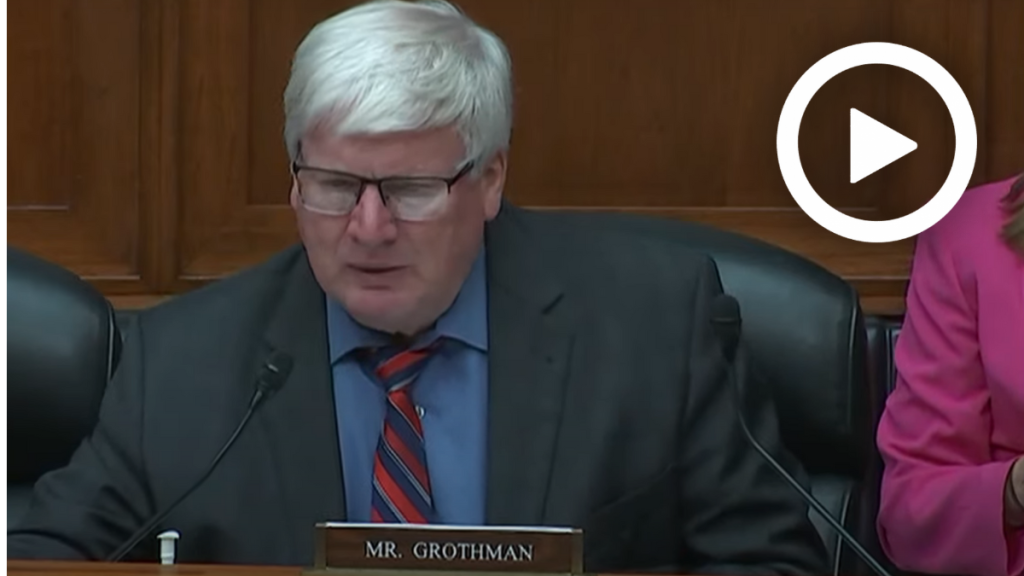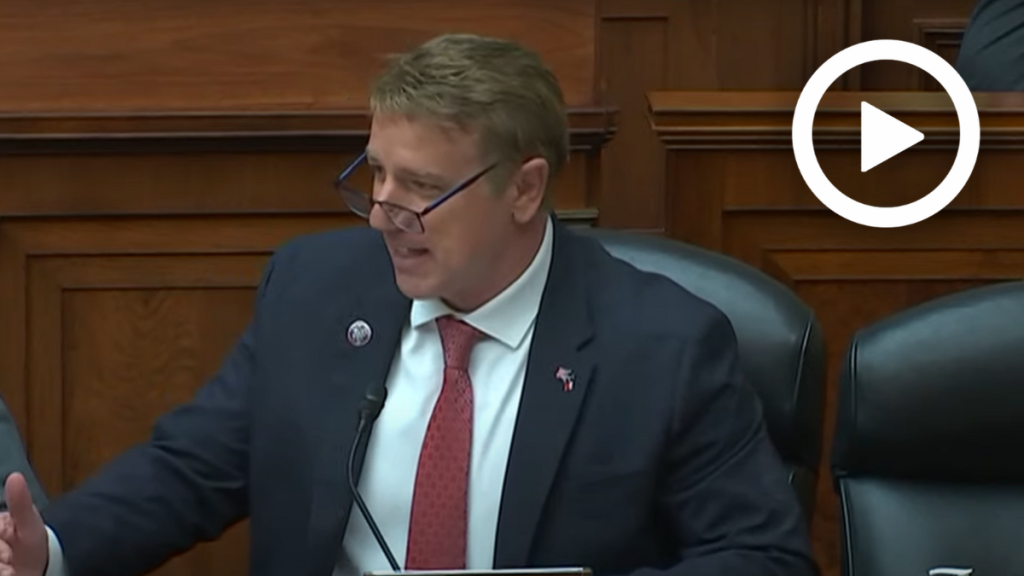Hearing Wrap Up: The Biden Administration’s Regulatory Blitz Jeopardizes America’s Economy
WASHINGTON – Today, the House Committee on Oversight and Accountability held a hearing titled “Death by a Thousand Regulations: The Biden Administration’s Campaign to Bury America in Red Tape.” At the hearing, members and witnesses highlighted how the Biden Administration’s sweeping executive orders and unchecked regulations have jeopardized economic opportunities, raised costs on Americans, and hurt small businesses still attempting to recover from the pandemic. Members stressed that President Biden’s radical, costly, and burdensome regulatory agenda is a dramatic expansion of Executive Branch power and will cost American taxpayers at least $1.5 trillion dollars over the next decade. Members noted that the Biden Administration has also targeted the Trump Administration’s many meaningful, necessary, and cost-saving deregulatory actions. They concluded that America’s small businesses, workers and communities should be provided tools to achieve economic success and the committee will pursue legislative solutions to ensure commonsense regulatory reform.
Key Takeaways:
The Biden Administration has morphed into a red tape regime that jeopardizes Americans’ ability to secure quality jobs, costs families more of their hard-earned money, and hurts small businesses.
- Mr. Casey Mulligan, Professor, University of Chicago: “The most notorious cost of regulation is the paperwork, sometimes known as ‘red tape.’ The federal executive branch alone issues thousands of new regulations each year that add to the 200,000 pages of federal rules already in place. One finding is that the rules finalized by the Biden Administration through the end of 2022 impose costs of nearly $10,000 per household, which is $1,300 more than the burden of the Obama Administration rules during the comparable timeframe.”
- Mr. Anthony Campau, Principal, Clark Hill Public Strategies: “The U.S. federal government is now issuing more rules at a higher price tag and a faster clip than ever before. According to one study, at its halfway point, the current administration had already imposed $318 billion in total regulatory costs and 218 million hours of annual paperwork burdens, as compared with the $208.7 billion of regulatory costs and 131 million hours of paperwork the Obama Administration had imposed over that same period.”
The Biden Administration’s regulatory overreach subverts Congress, aims to derail effective Trump Administration reforms, and will cost American taxpayers trillions of dollars over the next decade.
- Mr. Casey Mulligan, Professor, University of Chicago: “The Biden Administration has so far been adding regulatory costs at a rate of $617 billion per year of rulemaking, not counting regulatory costs created by statutes and other non-rule regulatory actions. President Trump’s approach not only avoided adding costs, but subtracted them. The cost savings from eight years of President Trump’s approach compared to President Biden’s is up to $80,000 per household.”
- Chairman James Comer (R-Ky.): “It is estimated that just three of the Biden Administration’s rules will cause $1.5 trillion to be spent over the next decade. We know what that means for businesses and consumers: higher costs of doing business, higher prices, and fewer choices in the marketplace. And we know that this overreach will only continue the expansion of Executive Branch power at the expense of the American people.”
Congress has a responsibility to ensure a commonsense, efficient, and results-driven regulatory system. The Oversight Committee will continue to hold the Biden Administration accountable for its extreme regulatory overreach and pursue legislative solutions to ensure commonsense regulatory reform.
- Mr. Adam White, Senior Fellow, American Enterprise Institute: “Congress could legislate binding procedures and standards for the agencies’ regulatory impact analyses, ensuring quality and consistency across presidencies, through amendments to the Unfunded Mandates Reform Act. Congress could also consider requiring agencies to regularly undertake ‘retrospective review’ of existing rules, which could spur agencies to reform outdated or unjustifiable regulations, and at the very least would improve agencies’ evaluation of new rules going forward.”
- Mr. Anthony Campau, Principal, Clark Hill Public Strategies: “The basic practices and procedures of the regulatory development process should not seesaw back and forth. Congress should step in and make the common-sense regulatory process reforms of the Trump Administration permanent.”
Member Highlights:
Committee Chairman James Comer (R-Ky.) emphasized that successful regulatory reforms implemented under the Trump Administration are being tossed aside in favor of a radical, excessive regulatory agenda. He stressed the importance of limiting bureaucratic regulations to help Americans and small businesses create, innovate, and thrive.
Chairman Comer: “The prior administration implemented substantial reforms to limit regulatory overreach, producing great economic success. President Biden ran on being a ‘unifying’ president, but instead he has used his platform to strip away those regulatory reforms we know were positively impacting the economy and replaced them with historic levels of new red tape. The Biden Administration wasted no time eliminating deregulatory policies and instead cleared the way for President Biden’s radical, costly, and burdensome agenda. When America isn’t tied down with red tape, or buried under heaps of federal paperwork, America’s small businesses, workers and communities are capable of soaring to new heights of prosperity.”
Chairman Comer pointed out that Congress has a responsibility to consider effective regulatory reforms. He noted that the Biden Administration’s regulatory blitz has also flown in the face of recent Supreme Court rulings.
Chairman Comer: “What a noble concept to put the power of regulating in the hands of Congress. It’s my understanding that President Trump reduced regulatory costs almost as fast as President Biden and President Obama added them. I’m concerned that some of the biggest new Biden regulations fly in the face of the Supreme Court’s decision last year in West Virginia vs. EPA. This is a big issue in my District. Do you share this concern?”
Mr. White: “I do.”
Chairman Comer: “What could the lasting consequences be?”
Mr. White: “There could be a lot of soft resistance to future decisions. It makes congressional oversight and legislative powers all the more important.”
Chairman Comer: “We support commonsense regulations. We need to examine, evaluate, and seek input on burdensome and costly regulations. Right now, there is no input from the private sector and unelected bureaucrats are now pushing devastating regulations.”
Rep. Virginia Foxx (R-N.C.) stated that the Biden Administration’s regulatory push is out of control. She noted that federal rules and regulations should not be a significant cost burden on American families and businesses.
Rep. Foxx: “The Biden Administration has displayed a pattern of grossly underestimating the cost of new regulations while greatly exaggerating the purported benefits by gaming the current system. We need to make sure that federal regulations do not unduly burden families and job creators and slow our economic engine. The cost in the Biden Administration is about 10,000 dollars per household of rules and regulations. This is really a staggering burden. Is there anything the Administration has done to justify this absurd regulatory burden?”
Professor Mulligan: “No… they have not.” Rep. Andy Biggs (R-Ariz.) stressed that regulatory overreach is an ongoing issue and hurts countless American businesses.
Rep. Biggs: “I thought I would just bring up some things we regulate. You check out the ketchup regulations lately? Ketchup regulations define what ketchup is. Normally we let the marketplace determine that… Ketchup regulations are not designed necessarily for safety. A lot of ketchup regulations are about just thickness. How about this one. Let’s look at cheese. It’s pages and pages of regulations that have nothing to do with even cheese safety. Buns! Hamburger buns. They’re regulated. Everything comes back to excessive regulations… This is overreach.”
Rep. Glenn Grothman (R-Wis.) pointed out that economic opportunities are being jeopardized by regulatory overreach. He highlighted how regulations severely impact small businesses attempting to navigate the marketplace.
Rep. Grothman: “The cost of new regulations is high. Business owners are telling me today they could have never started their company today because of all these regulations. It would make it impossible to start the company today… If you have six factories with a thousand employees, you can adapt to regulations more than a startup with 40 employees.”
Mr. White: “Surely large companies would like to do away with regulations, but at the very least they know they are in a better position to bear the costs. A lot of these regulatory frameworks force consolidation that creates a lack of competition and reinforces a lot of economic problems we see today.”
Rep. Pat Fallon (R-Texas) emphasized that reasonable regulations are effective, but excessive regulations pushed by President Biden are burdensome and disrupting economic opportunities for all Americans.
Rep. Fallon: “Limited government, low taxes, and reasonable regulation. This is why I ran for office in the first place because I believe in these things. We heard earlier that we are anti-regulation. That is patently absurd. We are for reasonable regulation. There is a thing called over-regulation… You get crushed as a small business under excessive regulation. Under Joe Biden, agencies across the government have been implementing crippling and costly regulations at a record pace. This hurts low-income communities. It has real consequences. It cost taxpayers more in the long run. Do you trust unelected bureaucrats, or do you trust the American people more? I trust the American people. There needs to be a balance. This is why we need to support reasonable regulations. What are some examples of downstream impacts for excessive regulations?”
Professor Mulligan: “Higher prices.”
Rep. Fallon: “They clearly increase prices. Do you think it has a disproportionate impact to small businesses too?”
Professor Mulligan: “Absolutely.”
Rep. Russell Fry (R-S.C.) stressed that the Biden Administration’s regulatory blitz is a clear effort to dramatically expand the power of the Executive Branch and subvert Congress.
Rep. Fry: “Since taking office, the Biden Administration has usurped Congress and used an incredible amount of authority to push their liberal agenda and fundamentally change the makeup of this country. Think about it, they have gone after law-abiding gun owners, push ridiculous regulations on all businesses, prioritize ESG standards over Americans’ retirement funds, push green energy over practical energy, decided Americans shouldn’t own gas stoves, and even feel the need to regulate puddles. The Executive Branch feels emboldened to expand their regulatory power over what Congress intended. Government agencies never should act like this. Congress has this role. The House has passed resolutions rebuking the Administration’s regulatory overreach. Has the Administration made any effort to halt this overreach?”
Mr. White: “No sir, in fact I am concerned by a number of agencies that are thwarting even the Supreme Court’s decisions. This is a transformative agenda.”
READ MORE:
Comer: The Biden Administration Subverted Congress to Bury America’s Economy Under Red Tape
CLICK HERE to watch the hearing.
